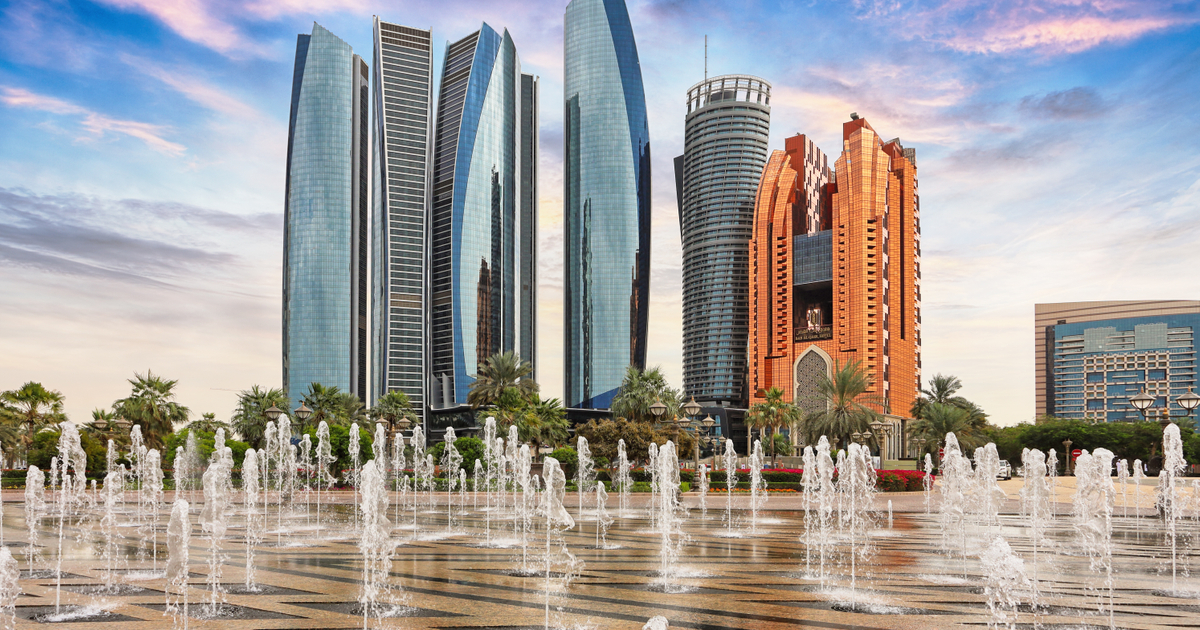Why global uncertainty won’t undermine transition goals
Editorial board member, Sunil Veetil shared with FinanceAsia his observations of the current sustainability landscape and discussed the climate-conscious innovations that Asia’s market participants can look forward to over the long term.

Editorial board member, Sunil Veetil shared with FinanceAsia his observations of the current sustainability landscape and discussed the climate-conscious innovations that Asia’s market participants can look forward to over the long term.

July 09, 2024
When FinanceAsia editorial board member, Sunil Veetil, took on his Singapore-based leadership role as head of Commercial Banking Sustainability for Apac at HSBC back in summer 2022, Asia was in the throes of pandemic uncertainty. Market to market, the approach of each governing authority proved to be heavily nuanced: Singapore had not long lifted restrictions to social gatherings and would soon abandon the mask mandate; while Hong Kong’s decision makers would deliberate for a further seven months before considering any such easing.
Yet, with hindsight being 20/20 (some may recoil at reference to the fateful numerical sequence), there was a sense of steadiness – albeit slow – in the unravelling of pandemic protocol which sits in stark contrast to today’s atmosphere of fast-paced-but-frequently-wavering global political and socioeconomic uncertainty. With over half of the world going to the polls this year – and a lot riding on upcoming election outcomes including France’s hung parliament and the final months of campaigning in the US; geopolitical complexities and tensions are pervading all market developments, not least the macroeconomic and inflationary outlook.
Reassuringly, however, Veetil is resolute in his resolve that global climate aspirations will forge ahead in spite of current conditions. “When you talk climate, you have to look long term,” he told FA. “Whilst there are short-term disruptions and changes – some of which have been positive; for example, the supply chain dispersion that has been taking place across the Asian region – it’s important to view climate from a longer perspective.”
He pointed to the outcomes of last November’s COP28 UN Climate Change Conference in Dubai, which served as a global stocktake of progress achieved by key economies towards the goals of the Paris Agreement, at the halfway point to their ultimate delivery by 2030. While the event publicly affirmed failure in capacity to limit global warming to 1.5 degrees Celsius by the end of this century; for the first time, it achieved consensus among all 196 heads of state and government officials to sanction the “beginning of the end” of the fossil fuel era, with efforts to eradicate their use by 2050. The conference laid the ground for a “swift, just and equitable transition, underpinned by deep emissions cuts and scaled-up finance”, a strategy which complements HSBC’s own ambitions to align its financing portfolio to net zero by 2050, as announced by the bank in 2020.
Climate management, Veetil explained, involves tackling a “perfect triangle” of challenges: politics, climate and the overall socio-economic picture. “The socio-economic impact of climate upon people is becoming all the more evident as we proceed… and to bring this all together, is the flow of capital.” He noted that while a lot of climate policy frameworks and trendsetting comes from Europe, the impact – “where the rubber hits the road” – is in Asia “and this is where the complexity is.”
Expanding on his comments for FA’s analysis of Asia’s debt capital market (DCM) activity, in which sustainable transactions were highlighted as playing an increasingly significant role within regional DCM dealmaking, Veetil said that typically, it continues to be the larger regional entities who lead the way in terms of raising significant capital to support sustainability aims. “The large tickets will always be driven by the sovereigns; and then it’s usually state-owned-enterprises (SOEs) or those large-cap private operators active in oil and gas or power and utilities, who are signing the big-ticket transactions.”
This seems to have been the case in 2024 so far, with Asia’s main players pioneering innovative climate transactions. In February, Japan followed up on its 2021 introduction of a transition finance framework by auctioning the world’s first sovereign climate transition bonds as a financing tool to support market growth alongside industry decarbonisation; while during the same month, HSBC participated in the first global multi-currency digital green bond offering, issued in Hong Kong.
“However, we are seeing green loans and sustainability-linked loans (SLLs) pick up at the mid-level and below this, in response to sustainable supply chain requirements. Of course, Asia is a supplier to the world.”
Veetil noted how European and North American buyers have become accustomed to outsourcing their emissions to Asia and that this had contributed some positive social and economic repercussions across the region, including an overall rise in income levels. With increasing pressure to report on and regulate sustainability, he explained that Asia-based manufacturers are not only on top of scope 3 metrics, but are pushing for capital expenditure (capex) to contribute to longer-term sustainability: to counteract those emissions that extend beyond the products themselves such as packaging, as well as manufacturing machinery.
“Take a textile manufacturer that supplies to one of the big fashion brands. It's not just that they want a sustainable supply chain and a robust working capital requirement; they're also looking at how to install a wastewater treatment plant or rooftop solar. They are actively seeking capex investment plus working capital that is sustainable.”
 Additionally, he highlighted the emergence of a circular economy to facilitate long-term sustainability, as being a growing trend: “Look at the battery ecosystem for example, a huge industry is developing around the recycling of batteries – additionally the recycling of solar panels, turbines and so forth is being considered. The recycling industry is becoming larger as ultimately, unless there is a circular economy around it, resources will be wasted. New action is being taken to develop a fully circular product lifecycle.”
Additionally, he highlighted the emergence of a circular economy to facilitate long-term sustainability, as being a growing trend: “Look at the battery ecosystem for example, a huge industry is developing around the recycling of batteries – additionally the recycling of solar panels, turbines and so forth is being considered. The recycling industry is becoming larger as ultimately, unless there is a circular economy around it, resources will be wasted. New action is being taken to develop a fully circular product lifecycle.”
The role of tech
Veetil emphasised various strides made across the field of technology, as being key to the future direction of the sustainability market. He commended Japan’s move to funnel over 55% of the proceeds from its recent climate transition issuance into research and development (R&D). “The future impact of investment going into research is set to be significant,” he said, noting the market’s action to invest in and develop domestic hydrogen production.
“Hydrogen has real potential to drive transition across hard-to-abate sectors such as steel, construction and aviation. But currently the market is ‘grey’ as it requires coal power to extract it from H2O.” He added that China and India are also investing heavily in the development of hydrogen. “It’s a space to watch.”
Climate-related research and technology is one of the areas which HSBC’s New Economy initiative aims to support. Since June last year, the bank has launched two fundraising strategies in Asia to invest in early-stage high-growth and tech-focussed businesses, to promote regional innovation. The first strategy, a $3 billion New Economy Fund (NEF) targets opportunities in Hong Kong and the surrounding Greater Bay Area (GBA), while a more recently launched $200 million vehicle targets investment across Singapore and Southeast Asia. Last month, the latter signed its first dedicated social loan to support Vietnamese venture-backed biotech start-up, Gene Solutions, which aims to enhance the accessibility and affordability of essential healthcare services across Southeast Asia. Another recent contribution included a $30 million green and social loan to Indonesia’s acquaculture and intelligence start-up, eFishery, which works to empower smallholder fish and shrimp farmers through tech, by increasing feed efficiency and reducing waste.
Veetil agreed that there is a strong socio-economic angle to sustainability developments in Southeast Asia, offering the example of electronic vehicle (EV) two-wheelers: “In certain areas in Southeast Asia (such as Vietnam and Indonesia) – as well as India, the majority of the population can’t afford to buy cars. We are going to see EV two-wheelers becoming more prevalent, popular and impactful… In fact, this is already happening and will continue to do so in the short- to medium-term.”
He added that the technologies emerging around carbon capture also offer real potential, but they “haven’t yet reached a sweet spot for mass adoption.”
Regulatory developments
But perhaps the most influential factor set to shape the sustainability landscape to come, is regulatory development and with it, clarity around how to deliver and enact a shared vision.
“What I am monitoring most closely on the regulatory side of things, is progress around the development of a country taxonomy,” Veetil disclosed.
“Reporting requirements are evolving quickly. Markets such as Hong Kong and Singapore have been very much at the forefront of this, but huge strides are also being made in geographies such as China and India, with new reporting requirements being introduced for listed companies.”
Singapore’s Accounting and Corporate Authority (Acra) together with Singapore Exchange Regulation (SGX RegCo) have mandated that listed companies start disclosing their climate impact in a phased manner, from financial year 2025.
“Over the next three years, most companies based in Singapore will report their climate data, which will certainly have an impact on the corporate mindset operating in the region,” Veetil said.
“Similarly, regulation being introduced elsewhere, such as in Europe, is taking effect globally. Take for example the new European deforestation regulation that has been published; as well as the carbon border adjustment mechanism (CBAM), which will soon take effect.”
“This is where we need a unified body to monitor and manage the direction of shared sustainability efforts. Currently this is something that is missing.”
Veetil suggested that various international entities are exploring options; and he proposed that efficacy could be found through a consortium of international central banks; or an governmental body such as the United Nations (UN) forming a platform involving corporates and financial institutions.
“We live in a very seamless economy, regulations in one country will definitely have an impact on the other.”
¬ Haymarket Media Limited. All rights reserved.
Disruption Companies Banks North Asia Southeast Asia South Asia ESG Climate Action Carbon Footprint Carbon Reporting Net Zero Green Mobility Solutions UN SDGs #sustainability #climate #transition #esg #uncertainty #geopolitics #hsbc #sunil veetil
 Koichiko
Koichiko 































